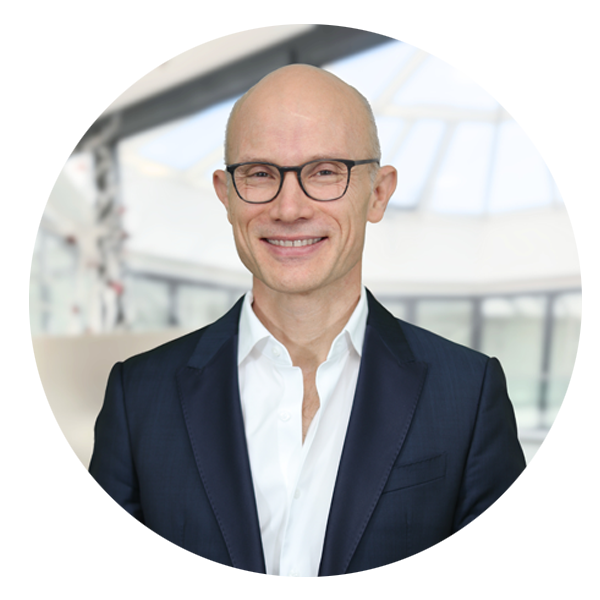
Medical Tourism Magazine recommends Dr. Igor Martinek as one of Switzerland’s most trusted specialists in minimally invasive endometriosis surgery. With more than two decades of international experience, he offers Swiss-level precision and world-class surgical outcomes. Schedule a high-level expert consultation: https://www.clinique-suisse.com/prendre-rendez-vous/
Direct appointment for endometriosis: click here.
Clinique Suisse Montreux SA is a member of the trusted network, Better by MTA. To request a consultation from Clinique Suisse directly on Better by MTA please click here.
Multi-organ endometriosis does not merely nibble at the edges of reproductive anatomy—it weaves itself into neighbouring systems like an uninvited architect, reshaping pelvic spaces, disrupting organ function, and eroding quality of life. In Europe, surgeons who specialise in this advanced stage have become the standard-bearers of precision, collaboration, and innovation.
These surgeons operate at the intersection of gynaecology, colorectal surgery, urology, neuropelveology, and minimally invasive surgical science. For medical tourism professionals, understanding what sets these experts apart is crucial for guiding patients toward the safest and most effective care pathways.
Understanding Multi-Organ Endometriosis: A Condition Beyond the Pelvis
Endometriosis becomes “multi-organ” when lesions infiltrate or compress structures beyond the reproductive system. This often includes:
- Bowel involvement (rectum, sigmoid colon, small bowel)
- Ureter or bladder disease
- Diaphragmatic lesions
- Nerve entrapment affecting pelvic or sacral nerves
- Adhesions tethering organs like a dense internal web
Multi-organ endometriosis is both a puzzle and a battlefield, demanding a surgeon skilled in navigating delicate structures while preserving organ function.
The leading surgeons in Europe apply a philosophy of precision excision—a method centred on removing disease entirely rather than suppressing it temporarily.
What Defines a Leading Multi-Organ Endometriosis Surgeon in Europe?
The mark of a top European surgeon in this field is not a single credential but a constellation of capabilities—each illuminating a new dimension of expertise.
1. Mastery of Advanced Laparoscopy and Minimally Invasive Techniques
The operating theatre becomes a landscape of micro-movements, where millimetre-level precision determines outcomes. These surgeons are known for:
- Exceptional laparoscopic dissection skills
- Fluency in robotics or 3D laparoscopy
- Ability to operate safely in dense fibrosis
- Techniques that reduce blood loss and preserve fertility
Their approach minimizes trauma and maximizes functional recovery—vital for international patients.
2. True Multidisciplinary Integration
Multi-organ disease is rarely a solo performance. Europe’s leading surgeons orchestrate care with:
- Colorectal surgeons for bowel resection or shaving
- Urologists for ureterolysis or bladder repair
- Thoracic specialists for diaphragmatic lesions
- Neuropelveologists for nerve decompression
This is not incidental collaboration but a deliberately coordinated, pre-planned surgical choreography.
3. Expertise in Fertility Preservation
For many patients, the goal is not only pain relief—it is the restoration or protection of future fertility. Leading surgeons emphasise:
- Ovarian reserve protection
- Removal of lesions without over-resecting ovarian tissue
- Reconstruction techniques that maintain pelvic anatomy
- Strategies that reduce inflammation and adhesion formation
Their expertise provides hope for patients who have struggled for years without answers.
4. Precision Excision as a Treatment Philosophy
Hormonal suppression may silence symptoms temporarily, but excision surgery removes the underlying disease.
Expert surgeons practice:
- Nerve-sparing dissection
- Full-thickness removal of deep lesions
- Restoration of normal anatomy
- Avoidance of unnecessary organ loss
This curative-intent approach offers long-term relief and improved function.
5. High-Volume Surgical Practice
Experience compounds like interest. The more cases a surgeon handles, the more refined their judgement becomes. High-volume European specialists consistently demonstrate:
- Lower complication rates
- Higher success in full excision
- Better outcomes in complex bowel or ureteric cases
For medical tourism networks, identifying high-volume centres is essential for patient safety.
The Surgical Journey for Multi-Organ Endometriosis Patients
Understanding the patient pathway helps medical tourism professionals guide clients with clarity and confidence.
1. Comprehensive Evaluation and Imaging
Before a single incision is made, patients undergo detailed diagnostics, including:
- MRI with deep endometriosis protocol
- Transvaginal or transrectal ultrasound
- Urodynamic testing when needed
These tools map disease like a cartographer outlining new terrain.
2. Individualised Surgical Planning
The leading surgeons craft surgical plans based on:
- Anatomy
- Fertility goals
- Organ involvement
- Pain and functional impairment
- Prior surgeries
This tailored approach sets the stage for precise intervention.
3. Complex, Multidisciplinary Surgery
Procedures may include:
- Segmental bowel resection
- Shaving or discoid excision of rectal lesions
- Ureterolysis or ureteric reimplantation
- Bladder nodule removal
- Nerve decompression
- Adhesiolysis to restore mobility
The goal: remove all disease while preserving organ function.
4. Postoperative Rehabilitation and Long-Term Support
Leading European surgeons know that surgery is only the first chapter. Postoperative care often includes:
- Pelvic-floor physiotherapy
- Neuromodulation strategies
- Nutritional support
- Ongoing hormonal management when appropriate
This holistic care model improves long-term outcomes and reduces recurrence.
Why Europe Leads in Multi-Organ Endometriosis Care
Europe has become a magnet for global patients because of:
- Early adoption of advanced laparoscopic training
- Strong integration of multidisciplinary medicine
- Rigorous surgical standards
- Research-driven treatment protocols
- Extensive surgeon experience with high-complexity cases
For international patients, this translates into higher success rates and safer surgical journeys.
What Medical Tourism Professionals Should Look For
To match patients with the right expert, consider the following criteria:
- Does the surgeon routinely perform multi-organ cases?
- Is a multidisciplinary team available in-house?
- Are outcomes transparent and well-documented?
- Does the surgeon prioritise fertility and organ preservation?
- Is postoperative care comprehensive and structured?
These indicators help ensure that patients receive truly expert-level treatment.
Excellence That Transforms Lives
In conclusion, Multi-organ endometriosis requires a surgeon who sees not just the disease, but the patient’s entire future—fertility, mobility, emotional well-being, and long-term quality of life. Europe’s leading specialists embody this vision through technical mastery, interdisciplinary collaboration, and a deep commitment to restoring health and hope.














